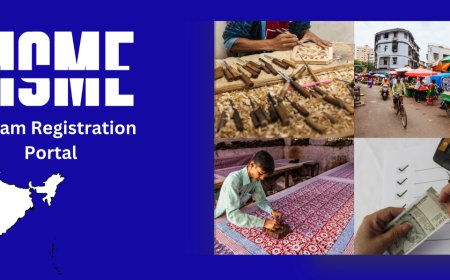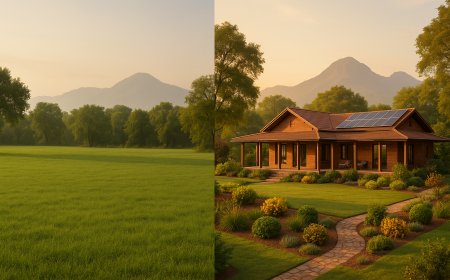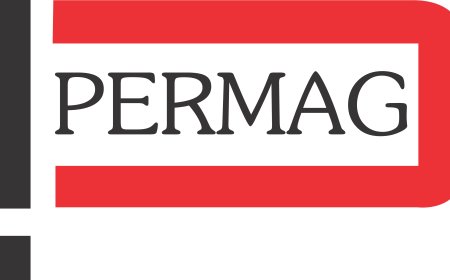Why Polypropylene Woven Bags Are a Smart Choice for Sustainable Packaging
Discover why polypropylene woven bags are the smart, sustainable choice for packaging—reusable, recyclable, and eco-friendly for various industries.

In a world where environmental sustainability is no longer optional, choosing eco-friendly packaging has become a priority for businesses across all sectors. Among the various alternatives available today, polypropylene woven bags stand out as a smart and sustainable packaging solution. Durable, reusable, and recyclable, these bags tick all the right boxes for companies seeking to reduce their environmental impact while maintaining efficiency and cost-effectiveness.
This blog explores why polypropylene woven bags are gaining popularity in sustainable packaging and how their unique qualities contribute to environmental conservation.
What Are Polypropylene Woven Bags?
Polypropylene woven bags are made from woven polypropylene fabric, a thermoplastic polymer known for its strength and flexibility. The fabric is created by weaving strips of polypropylene together, forming a strong, breathable, and lightweight material ideal for bulk packaging and transportation.
These bags are commonly used in industries like agriculture, construction, food processing, and retail. With their excellent resistance to wear and tear, theyre often the go-to choice for carrying heavy or bulky items such as grains, sand, cement, and fertilizers.
Reusability: A Step Towards Reducing Waste
One of the primary reasons polypropylene woven bags are considered sustainable is their high reusability. Unlike single-use plastic bags that end up in landfills after one use, these bags can be used multiple times without losing their structural integrity.
Each reuse reduces the number of bags needed and helps cut down on waste generation. For example, in the agricultural sector, farmers can reuse the same bag to carry produce season after season. In retail, many brands are switching to customized woven bags that customers can reuse for shopping, offering a sustainable branding opportunity.
Benefits of Reusability:
-
Cuts down on the need for single-use packaging
-
Reduces the volume of waste sent to landfills
-
Saves costs over time for both businesses and consumers
-
Encourages eco-conscious habits among users
Recyclability: Closing the Loop
Recyclability is a critical component of sustainable packaging, and polypropylene fabric scores high in this area. Polypropylene is classified as plastic #5, which is recyclable in many facilities worldwide. After its usable life, woven polypropylene can be collected, cleaned, melted down, and repurposed into new products such as:
-
Plastic furniture
-
Bins and containers
-
Battery cases
-
Construction materials
-
New woven bags
This ability to recycle polypropylene reduces the need for virgin plastic, lowers carbon emissions, and supports a circular economy model where materials are continuously reused instead of discarded.
Polypropylene Fabric Uses That Promote Sustainability
Polypropylene fabric isnt just limited to woven bags; it has a wide range of applications that also contribute to sustainability goals across industries. Some of the most common polypropylene fabric uses include:
-
Geotextiles: Used in civil engineering and construction, these fabrics help in soil stabilization, drainage, and erosion control.
-
Reusable shopping bags: Lightweight yet sturdy, they are ideal for replacing disposable plastic or paper bags.
-
Protective packaging: Used for wrapping and securing products during transport, reducing damage and waste.
-
Agricultural covers: Help control weed growth and retain soil moisture, promoting efficient farming.
-
Industrial sacks: Ideal for storing and transporting materials such as cement, grains, fertilizers, and chemicals.
Each of these applications adds to the eco-friendly appeal of polypropylene by enhancing product lifespan, reducing dependence on non-renewable materials, and cutting down operational waste.
Lower Carbon Footprint Compared to Alternatives
Manufacturing polypropylene woven bags requires less energy compared to producing paper bags or thicker plastic alternatives. Thanks to the materials strength and durability, less material is needed to achieve the same performance. This translates to a lower carbon footprint from raw material extraction through to production and transport.
Additionally, because these bags are lightweight, they require less fuel during transportation, further minimizing environmental impact. When adopted on a large scale, such savings can make a significant difference in a companys overall sustainability performance.
Reducing Plastic Waste in Industries
Industries are some of the largest consumers of packaging materials. By switching to polypropylene woven bags, they can significantly reduce plastic waste without compromising on performance.
Heres how:
-
In agriculture: Farmers reduce dependence on flimsy plastic sacks that often tear or degrade quickly.
-
In construction: Cement and sand are stored securely in heavy-duty woven bags, avoiding leaks and contamination.
-
In retail: Stores offer customers stylish, branded PP woven bags that can be reused hundreds of times, reducing the use of plastic or paper alternatives.
Over time, this shift contributes to a considerable drop in overall packaging waste and helps meet governmental regulations and sustainability standards.
Cost-Efficient and Eco-Friendly A Rare Combo
Sustainability is often perceived as expensive, but polypropylene woven bags challenge that notion. Their long lifespan, resistance to wear and tear, and reusability make them highly cost-effective in the long run. Businesses dont have to sacrifice profitability for eco-friendliness.
Moreover, bulk manufacturing and printing make it easy for companies to customize these bags for branding while keeping the cost low. This is especially useful for small businesses and exporters looking to enhance brand visibility and sustainability simultaneously.
Conclusion
Polypropylene woven bags are more than just a packaging solutionthey are a responsible step toward a cleaner, greener planet. By offering reusability, recyclability, and a lower environmental footprint, they help businesses across the globe meet their packaging needs while supporting sustainability goals.
As industries continue to face pressure to adopt greener practices, polypropylene fabric uses will only grow in importance. Whether youre in agriculture, retail, logistics, or construction, switching to polypropylene woven bags isnt just a smart moveits a necessary one.
Ready to make the switch? Partner with reliable suppliers and manufacturers that prioritize quality, sustainability, and long-term value. Its time your packaging spoke volumesabout your product and your commitment to the planet.


























